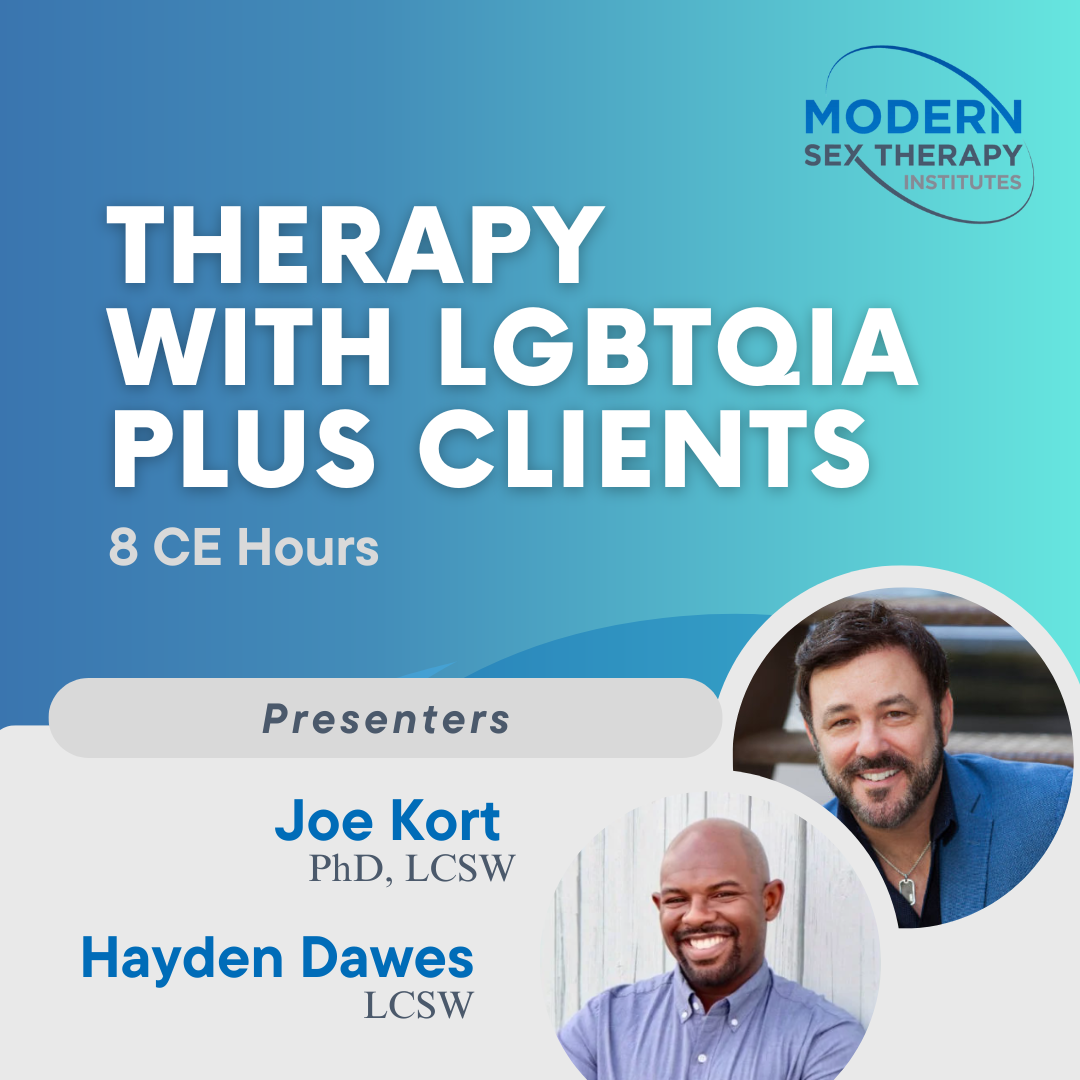Therapy with LGBTQIA Plus Clients (8 CE Hours, 2021)
$320.00
8 CE Hours
Presenters: Joe Kort, Ph.D. & Hayden Dawes, LCSW
Recorded workshop available via video on demand
AASECT Category: Sex Therapy Training, Section A
- self-acceptance and internalized homophobia
- non-hetero-normative sexual behaviors and practices
- trauma and abuse from growing up LGBTQ
- the difficult process of coming out
Title: Applying Cultural Humility to foster connection with Queer Clients of Color
Description: As therapists, we are called to create secure containers for each client who shares our room regardless of cultural differences. However, due to our humanness and our own internalizations of systems of domination and oppression, we miss the mark. Thus, we create empathic failures and therapeutic disruptions, along the lines of identity and culture. This is especially concerning the mental health treatment of Queer Clients of Color, who due to inhabiting two oppressed identities often face higher rates of mood disorders, along with other social challenges when compared to their White counterparts. In this workshop, we will utilize the cultural humility framework to support our work in re-humanizing and building deeper connection with our Queer Clients of Color. Consequently, realizing our commitment to diminish these structural and clinical gaps.
Hayden Dawes, LCSW, LCAS.: earned his Masters’ of Social Work degree from North Carolina State University in 2014. Following graduation, he provided mental health treatment and case management to diverse populations in various settings including inpatient, outpatient, and the community. His practice experience includes hospital social work, mental health and addiction treatment, in addition to people involved in the legal system. In service to the profession, he has served as communications chair of the board of directors and vice-president to the North Carolina Society for Clinical Social Work. In August 2019, he began pursuing my Ph.D. in Social Work at the University of North Carolina-Chapel Hill to further his research in examining the psychosocial challenges impacting people of color and LGBTQIA+ individuals, while seeking advanced methods to intervene on provider implicit and explicit biases.
- Assess gay, lesbian, bisexual, transgender and questioning clients for psychological trauma to assist in informing treatments interventions.
- Describe the six distinct stages of the coming out process to provide optimal amount of support to the client.
- Explain the difference between mental health disorders that mimic the effects of the trauma from growing up LGBTQ.
- Describe 2 specific clinical interventions to more effectively treat LGBTQ clients.
- List 2 assessment tools to more effectively treat LGBTQ clients.
- Describe a clinical intervention to work more effectively with LGBTQ clients from different generations.
- Explain the dynamics of same gendered couple when working with LGB couples in session.
- List 2 vulnerabilities and 2 strengths when working with LGB couples in session.
Class originally recorded: 12/12/2020.
Social workers completing this course receive 8 ethics continuing education credits.

